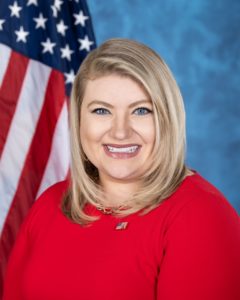Dec 14, 2021Florida rep: COVID shows importance of agriculture advancements
While the global health pandemic had a devastating impact on international trade in 2020, there may be a silver lining. For the first time, policymakers now view the agriculture industry as national security.

Speaking at the Florida Fruit & Vegetable Association’s 77th annual convention breakfast, U.S. Rep. Kat Cammack, R-Florida, said food shortages during COVID-19 showed her colleagues in Washington, D.C., the value of investing in labor, infrastructure and research to support specialty crop growers.
Cammack stated that she and other industry advocates are working on getting more agriculture-related items — like research funding — in the proposed $3.5 trillion reconciliation budget bill as well as increasing direct funding support for farmers in the Farm Bill which is set to expire in 2023.
Agriculture consultant and public speaker Damian Mason agreed Americans have a greater understanding of the importance of agriculture. But he warned industry leaders that they need to “change what they do versus changing what they think.” Mason added that there are a number of worldwide trends taking place that will dramatically alter the future with fewer farmers producing an abundance of crops for a shrinking Western population.
Mason, host of “The Business of Agriculture” podcast, noted that the total number of U.S. farms has fallen from 3 million in 1969 to about 2 million today. Meanwhile, the population of the western world has been declining as a rising middle class worldwide elects to have fewer children. This imbalance is reflected in the fact that more than one-third of the nation’s agricultural production goes to waste.
Mason predicted that this will place a greater emphasis on growing alternative crops, like dry beans, lentils, sorghum, hemp and kernza. Marginal farmland will revert to natural conservation as farmers take land out of production. Fewer people will mean fewer farmworkers, which will necessitate more automation, with innovation coming from outside the industry from companies like Tesla and Uber/Lyft.
— Florida Fruit & Vegetable Association














